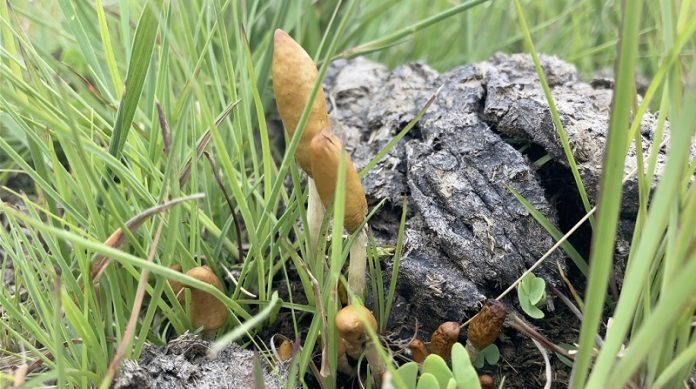
Researchers and citizen scientists have discovered two new species of psychoactive mushrooms in southern Africa.
This discovery brings the total number of known Psilocybe species in Africa to six.
Psilocybe mushrooms are famous for their psychoactive properties, and about 140 species have been described worldwide.
The new mushrooms, named Psilocybe ingeli and Psilocybe maluti, were described in a paper published this week in the journal Mycologia.
The research was a collaboration between Stellenbosch University (SU) and dedicated mushroom enthusiasts.
Psilocybe ingeli was found in 2023 by Talan Moult, a self-taught mushroom expert. He discovered it growing in pastureland in KwaZulu-Natal.
Psilocybe maluti was first identified in 2021 by Daniella Mulder on a small farm in the Free State. Mulder sent photos of the mushrooms to Andrew Killian, a leading citizen mycologist in Somerset West, for identification.
The unusual mushrooms were then sent to Breyten van der Merwe for DNA analysis in the lab of Professor Karin Jacobs at SU’s Department of Microbiology.
Van der Merwe, now a postgraduate student in chemical engineering at SU, is a trained mycologist and the first author of the research paper.
Only one collection of Psilocybe ingeli has been found, growing in the pastureland of KwaZulu-Natal.
The paper also highlights the traditional use of Psilocybe maluti by Basotho healers in Lesotho. This is the first documented use of hallucinogenic mushrooms in traditional African practices.
Citizen mycologist Cullen Taylor Clark, a co-author of the paper, collaborated with Mamosebetsi Sethathi, a traditional healer from Lesotho, to document the use of Psilocybe maluti in local healing practices. Known locally as “koae-ea-lekhoaba,” these mushrooms play a role in the healing traditions of the Basotho people.
Van der Merwe believes that many more Psilocybe species are yet to be discovered in southern Africa. He emphasizes the importance of citizen scientists in this field: “These discoveries were made possible by citizen scientists.
It’s impossible for a single researcher to cover all the areas that mushroom enthusiasts can access. This is the only way to advance the study of African mushrooms.”
Professor Jacobs agrees, stating, “There are very few mycologists in Africa documenting local biodiversity. Given the vast diversity of fungi on the continent, it’s a challenging task. Working with citizen mycologists is very beneficial.
It not only provides more material but also encourages discussions and exploration, helping to document the love of mushrooms in Africa.”
This collaborative effort between professional and amateur mycologists is crucial for advancing our understanding of Africa’s rich fungal biodiversity.
If you care about health, please read studies about the best time to take vitamins to prevent heart disease, and vitamin D supplements strongly reduce cancer death.
For more health information, please see recent studies about plant nutrient that could help reduce high blood pressure, and these antioxidants could help reduce dementia risk.



